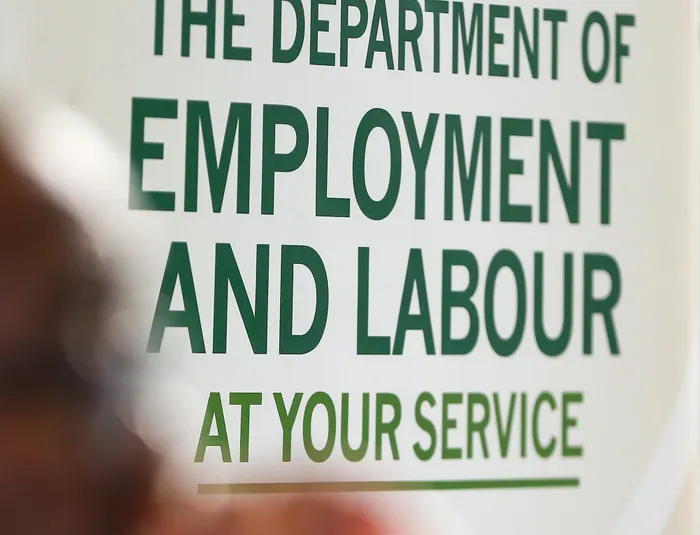
The EE Regulations are designed to promote equitable representation across all sectors of the economy and apply to all companies with more than 50 employees,
Image: Leon Lestrade/ Independent Newspapers
Business Unity South Africa (Busa) has filed legal proceedings against the recently published Employment Equity (EE) Sector Targets, which officially came into effect on 1 September 2025.
The EE Regulations are designed to promote equitable representation across all sectors of the economy and apply to all companies with more than 50 employees, setting targets across skilled, professional, and management levels over the next five years.
The country’s largest organised business body on Monday stressed that its challenge is not aimed at opposing the Employment Equity Amendment Act or the principle of sectoral numerical targets under Section 15A of the Act, but rather the way in which the current targets were developed and imposed.
BUSA CEO Khulekani Mathe said the organisation has engaged with the Department of Employment and Labour (DEL) for years on workplace transformation.
However, he argued that the consultation process that led to the new sector targets was inadequate and procedurally flawed.
“What took place was not meaningful consultation; it was a presentation,” Mathe said. “As social partners, we cannot allow performative engagement to substitute for genuine collaboration.”
Among the key issues Busa highlighted were limited consultation time, opaque methodology, insufficient sectoral analysis, conflicting compliance frameworks, and a one-size-fits-all approach.
“The need for transformation is urgent, but urgency must not become recklessness. We’re acting now to protect the credibility of equity policy. Unworkable targets do not advance transformation. They deepen frustration and erode trust in public policy,” Mathe said.
“Poorly developed targets risk damaging vital sectors of the economy. If targets are unrealistic or not based on the skills available in each sector, companies may find themselves unable to comply. This creates uncertainty and weakens the integrity of the regulatory process, ultimately undermining the transformation and inclusion that the Employment Equity Act is meant to achieve.”
Busa also emphasised that its legal action is not about resisting transformation but ensuring that it is implemented in a credible, lawful, and sustainable way. The organisation reiterated its support for workplace diversity and inclusivity, noting that it has consistently worked with government and labour to promote equity.
The decision to litigate follows repeated attempts to resolve concerns constructively, including formal meetings, data submissions, and presentations to the Minister of Employment and Labour.
Despite the legal challenge, Busa said it remains committed to collaboration with government on broader national priorities, including energy, transport and logistics, crime and corruption, and youth employment.
“Transformation is a national imperative, and to succeed, it must be implemented in a way that builds confidence, promotes dialogue, and delivers results that are both meaningful and sustainable,” Busa said.
The EE Regulations were challenged in court by the National Employers' Association of South Africa and Sakeliga, and the court ruled in favour of the government.
Civil rights organisation Free SA has since launched a nationwide campaign opposing the EE targets, which the organisation warned amounted to unconstitutional racial quotas.
Free SA argues that blanket racial quotas, especially in regions or sectors where national demographics cannot reasonably be mirrored, may violate Section 9 of the Constitution, which protects citizens from unfair discrimination.
“These quotas risk reducing human beings to racial statistics, rather than recognising individual skills, merit, and potential. They do not reflect the constitutional promise of non-racialism and equality before the law,” said Reuben Coetzer, spokesperson for Free SA.
“While we support transformation, these quotas are a step backward. They are neither rational nor fair, and they ultimately entrench division.”
However, Professor Armand Bam, the head of social impact at Stellenbosch Business School, said the Constitution and Employment Equity Act are explicit, affirmative action is a legitimate tool for redress.
Bam said Section 9 of the Constitution recognises that achieving equality sometimes requires treating people differently. In this sense, the project of transformation is lawful, ethical, and necessary.
"But the law also sets limits. It prohibits arbitrary exclusion or creating hostile working conditions based on race. When Kannemeyer’s remarks suggested that white employees should be made uncomfortable until they resign, he crossed into territory that no court would defend," Bam said.
"What is legally mandated transformation cannot become punitive engineering. That tension between permissible affirmative action and impermissible discrimination is precisely why the debate remains so combustible."
BUSINESS REPORT